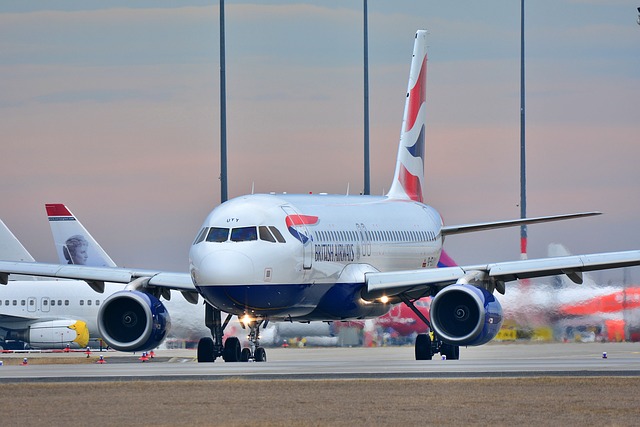Insights into Aviation Training Opportunities in the Netherlands
The aviation industry in the Netherlands offers a range of roles for individuals proficient in English. This sector is experiencing growth, which presents various conditions for those interested in pursuing a career in aviation. Understanding the dynamics of this field can provide valuable insights into what working in this environment entails.

Understanding the Aviation Industry in the Netherlands
The Dutch aviation sector represents a vital component of the national economy, centered around major airports such as Amsterdam Airport Schiphol, one of Europe’s busiest aviation hubs. The industry encompasses commercial airlines, cargo operations, maintenance organizations, and ground handling services. Training institutions in the Netherlands operate under strict European Union Aviation Safety Agency (EASA) regulations, ensuring that programs meet international standards. The country hosts several flight training organizations, aviation academies, and technical schools that provide comprehensive education ranging from private pilot licenses to airline transport pilot licenses. The integration of theoretical knowledge with practical flight experience forms the foundation of Dutch aviation education, preparing students for careers in an increasingly competitive global market.
The Netherlands benefits from well-maintained airspace, modern training aircraft fleets, and experienced instructors with backgrounds in commercial and military aviation. Training facilities often collaborate with airlines and aviation companies, creating pathways for graduates to transition into professional roles. The regulatory framework ensures consistent quality across institutions, while the multicultural environment of Dutch aviation schools exposes students to international perspectives essential for global careers.
Language Proficiency and Its Role in Aviation Careers
Language skills serve as a fundamental requirement for aviation professionals operating in international environments. English functions as the universal language of aviation, mandated by the International Civil Aviation Organization (ICAO) for all pilots and air traffic controllers engaged in international operations. In the Netherlands, aviation training programs emphasize English proficiency alongside technical skills, recognizing that effective communication directly impacts flight safety and operational efficiency.
ICAO Language Proficiency Requirements stipulate that pilots must demonstrate at least Level 4 proficiency on a six-level scale, covering pronunciation, structure, vocabulary, fluency, comprehension, and interactions. Many Dutch training institutions integrate language assessment and instruction into their curricula, offering specialized aviation English courses that focus on standard phraseology, emergency communications, and technical terminology. For international students, this linguistic component ensures they can operate confidently in English-speaking cockpits and communicate with air traffic control worldwide.
Beyond English, multilingual capabilities provide competitive advantages in the European aviation market. Dutch aviation professionals often speak multiple languages, facilitating operations across diverse European destinations. Training programs may offer instruction in Dutch, English, or both, depending on the institution and target student population. Language proficiency extends beyond cockpit operations to cabin crew positions, ground operations, and aviation management roles, where customer service and coordination require clear communication across cultural boundaries.
Insights into the Growth of the Aviation Sector
The global aviation industry has experienced significant evolution over recent decades, with periods of rapid expansion followed by challenges including economic fluctuations, environmental concerns, and operational disruptions. The Netherlands aviation sector reflects these broader trends while maintaining resilience through adaptation and innovation. Pre-pandemic projections indicated steady growth in air travel demand, driving requirements for trained pilots, technicians, and support personnel. While recent years brought unprecedented challenges, recovery patterns suggest renewed demand for aviation professionals as operations normalize and expand.
European aviation faces a documented pilot shortage, with industry analysts projecting substantial demand for qualified pilots over the coming decades. This shortage creates opportunities for individuals completing training programs in the Netherlands and elsewhere. The growth extends beyond flight crew to encompass aircraft maintenance engineers, air traffic controllers, aviation managers, and specialized technical roles. Technological advancements, including next-generation aircraft and digital systems, require continuous professional development and updated training methodologies.
Sustainability initiatives increasingly influence aviation sector growth, with emphasis on fuel-efficient operations, alternative propulsion systems, and reduced environmental impact. Training programs adapt to incorporate these developments, preparing future professionals for an industry balancing growth with ecological responsibility. The Netherlands, with its commitment to innovation and sustainability, positions itself at the forefront of these industry transformations.
Training Pathways and Program Options
Aviation education in the Netherlands offers diverse pathways tailored to different career objectives and experience levels. Integrated training programs combine theoretical instruction with flight training in a structured sequence, typically designed for individuals with no prior flying experience who aim to become commercial airline pilots. Modular training allows students to complete training in stages, offering flexibility for those balancing education with other commitments or transitioning from different careers.
Private Pilot License (PPL) programs provide foundational flying skills for recreational aviation or as a stepping stone toward professional qualifications. Commercial Pilot License (CPL) training prepares individuals for paid flying positions, while Airline Transport Pilot License (ATPL) represents the highest certification level, required for captains operating commercial aircraft. Multi-crew cooperation courses and type rating training for specific aircraft models complement these core qualifications.
Beyond flight crew training, the Netherlands offers programs in aviation management, aerospace engineering, air traffic control, and aircraft maintenance. Universities and specialized institutions provide bachelor’s and master’s degrees combining technical knowledge with business acumen, preparing graduates for leadership roles across the aviation ecosystem. Practical experience through internships and industry partnerships enhances employability and professional networks.
Regulatory Framework and Certification Standards
European aviation training operates under EASA oversight, ensuring standardized certification recognized across member states and many international jurisdictions. Training organizations in the Netherlands must obtain EASA approval, demonstrating compliance with detailed requirements covering curriculum content, instructor qualifications, aircraft maintenance, safety management, and quality assurance. This regulatory structure provides students with confidence that their qualifications will be recognized internationally, facilitating career mobility.
Medical certification represents another essential component, with pilots required to maintain medical fitness through regular examinations conducted by aviation medical examiners. Class 1 medical certificates apply to commercial pilots, while Class 2 certificates suffice for private pilots. Understanding medical requirements early in the training process helps prospective students assess their eligibility and plan accordingly.
Continuous regulatory updates reflect evolving safety standards, technological developments, and operational best practices. Training institutions regularly update curricula to align with regulatory changes, ensuring graduates possess current knowledge and skills. This dynamic regulatory environment underscores the importance of selecting accredited training providers committed to maintaining compliance and educational excellence.
Considerations for Prospective Students
Individuals considering aviation training in the Netherlands should evaluate multiple factors to make informed decisions aligned with their career goals and circumstances. Researching institution reputations, examining curriculum details, understanding total program duration, and assessing support services contribute to successful training experiences. Visiting facilities, speaking with current students and alumni, and reviewing completion rates provide valuable insights beyond promotional materials.
Financial planning requires careful attention, as aviation training represents a significant investment. While specific costs vary by institution and program type, prospective students should investigate all expenses including tuition, flight hours, examination fees, accommodation, and living costs. Some institutions offer financing options or payment plans, while scholarships and sponsorships may be available through airlines or aviation organizations. Independent financial research and planning help ensure sustainable paths through training completion.
Career prospects depend on multiple variables including qualification levels, experience accumulation, networking effectiveness, economic conditions, and industry demand patterns. While training provides essential credentials, successful aviation careers require dedication, continuous learning, adaptability, and professionalism. Understanding realistic career timelines and progression pathways helps set appropriate expectations and maintain motivation throughout the training journey.
Conclusion
The Netherlands offers a robust environment for aviation education, characterized by high standards, international recognition, and diverse program options. Understanding industry dynamics, language requirements, and growth trends provides prospective students with context for making informed training decisions. As the aviation sector continues evolving, well-prepared professionals with comprehensive training and adaptable skills will find opportunities to contribute to this dynamic global industry. Thorough research, realistic planning, and commitment to excellence form the foundation for successful aviation careers originating from Dutch training institutions.




